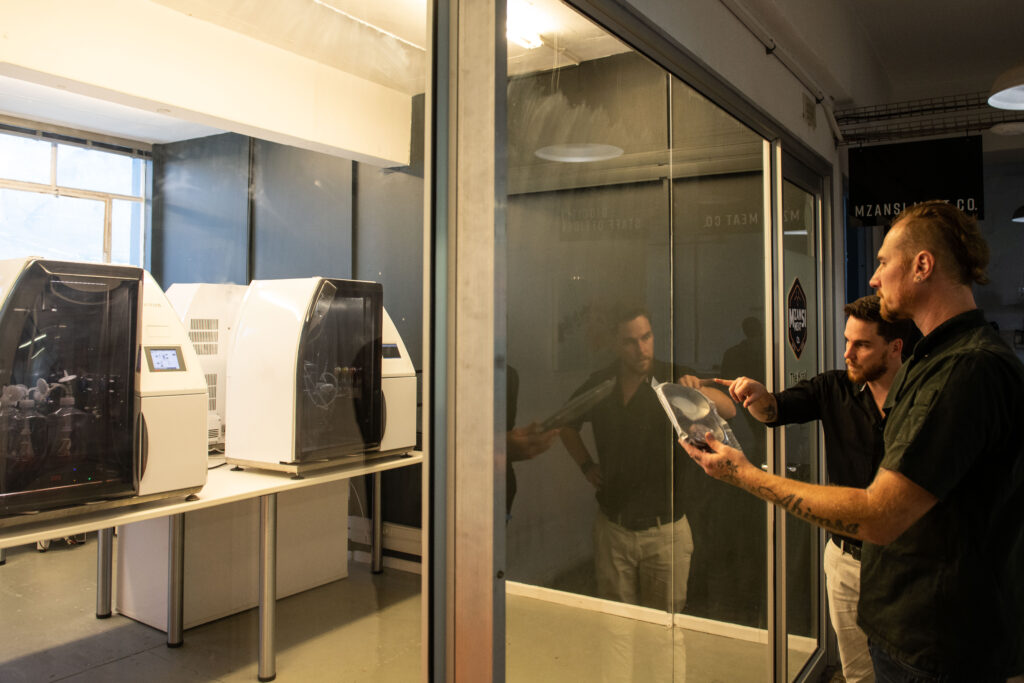Africa’s First Cultivated Meat Startup Rebrands to Newform Foods, Aims to Ramp Up Production with Cost-Effective Platform
4 Mins Read
South Africa’s Mzansi Meat is rebranding to Newform Foods, and has developed a cost-effective bioproduction platform to accelerate production of cultivated meat. Africa’s first cell-cultured meat company, Newform Foods is in early-stage conversations with retailers, food manufacturers and meat companies and is inviting collaborations from like-minded leaders.
Newform Foods was launched in 2020 with the aim to develop products specifically tailored to traditional African dishes, from braai to shisa nyama. It raised $130,000 in pre-seed funding in 2022, and has attracted the attention of international investors, including Wild Earth CEO Ryan Bethencourt.
The Cape Town-based company boasts cross-continent capabilities, with research and development operations in South Africa, and a commercial hub in the UK opening this year. Newform Foods claims its proprietary bioproduction process significantly reduces the cost and time needed to make cultivated meat. And its team of engineers and scientists have developed a bioplatform offering end-to-end solutions from prototype to pilot and beyond, simplifying the journey of the meat from lab to market.
A focus on cost and local agriculture

Last year, the company announced it had successfully produced a cultivated beef burger after two years of R&D. Having completed the Brinc food tech accelerator, it plans to produce mince, sausages, steaks, chicken and nuggets in the future, with a focus on meat cuts that are suited to classic African dishes.
The South African startup has firm roots in the local agriculture system. Cells are harvested from animals by vets animals at a local farm sanctuary. In the labs, they are isolated, grown in a culture medium, and added to intricate scaffolds to generate a whole-cut product.
“We’ve always had a thing for meat. It’s easy to see why – meat goes with all occasions and brings us together to make moments more flavourful,” Newform Foods co-founder and CEO Brett Thompson said when unveiling the cell-cultured burger. “It’s also a rich form of protein loved by cultures the world over. The journey from the source to our plate, however, comes at a cost.”
Price parity is important to the company. A quarter of South Africa’s population lives in food poverty, while more than half lives in poverty at the national upper poverty line, according to the World Bank. “We are at the forefront of re-imagining food systems for the better,” co-founder and CFO Tasneem Karodia told Green Queen last year. “Our technology aims to bring cultivated meat cheaper and faster to consumers by leveraging our local expertise.”
Today, Thomson says the meat industry is fraught with issues, from extensive antibiotics use to the inhumane treatment of animals and severe environmental impact. “We provide a sustainable and efficient solution to these challenges by making cultivated animal products mainstream,” he states. “Our focus is on the development of a humane, sustainable alternative to conventional meat production.”
Cultivated meat in Africa

Africa’s population is expected to grow from 1.3 billion to 2.5 billion by 2050 – and the demand for meat is expected to skyrocket with it. That figure means a quarter of the global population in 2050 would be African, which presents challenges as well as opportunities for food manufacturers. There’s a lot of potential in this space – Newform Foods is one of only two companies working in cellular agriculture in Africa (the other, fellow South African brand WildBio (formerly Mogale Meat), unveiled the continent’s first cultivated chicken).
In October 2021, a consumer study found that 60% of South Africans are ‘highly interested’ in trying cultivated meat, while a further 53% said they were ‘highly likely’ to purchase products made this way. In fact, 31% said they were open to paying more for cell-cultured meat.
“Our findings suggest that both plant-based and cultivated meat products could offer viable market-based pathways toward a more healthy, sustainable, and equitable protein supply in South Africa and other emerging and developing nations,” commented lead author Dr Keri Szejda.
“Cultivated meat is about to help reimagine the food system in Africa for good,” Thompson told Green Queen last year. “The potential for bringing quality protein to more people on the continent is extremely exciting.”




